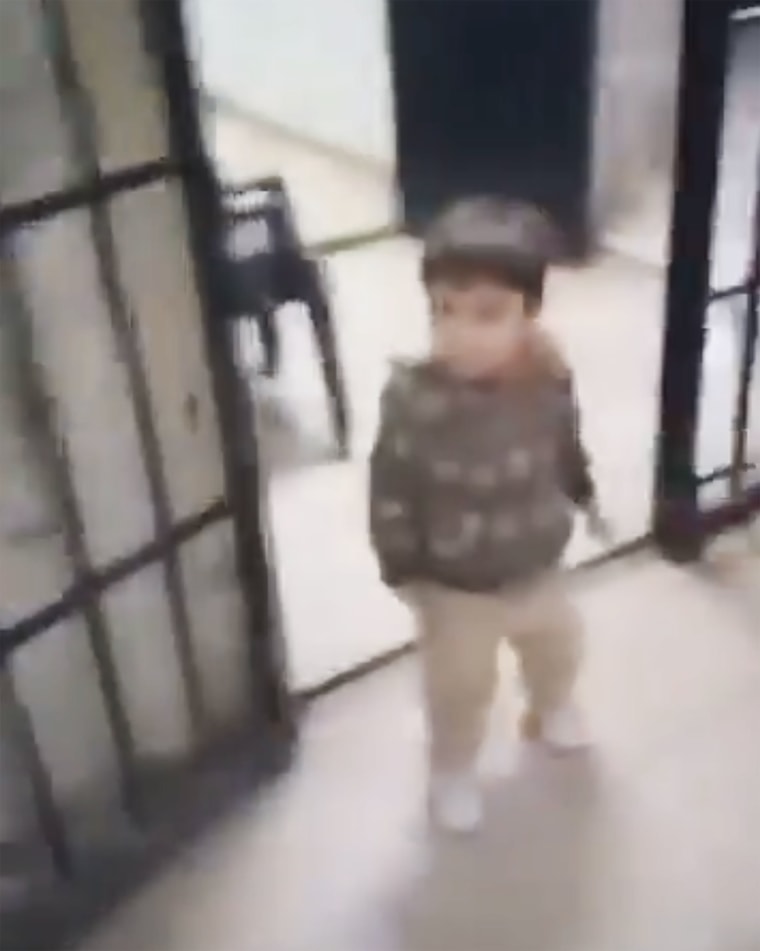
Following the overthrow of President Bashar Al-Assad, striking pictures have surfaced of Syrians, including women and children, being released from jails throughout the nation.
Hundreds of thousands of political detainees vanished under his cruel rule and were imprisoned in appalling conditions. On Monday, Assad was in Moscow after fleeing the country, and one infamous site was being inspected for evidence of covert underground cells.
In one video confirmed by NBC News, men were shown applauding as militants unlocked the doors and then entered Saydnaya prison, sometimes referred to as the “Human Slaughterhouse,” outside of Damascus, only hours after opposition forces took control of the Syrian capital.
In a different video, a young kid was seen tottering out of a cell while the women around him celebrated. Some of the women were perplexed after hearing that they had been released and asked to see their identification cards and possessions.
Rescue crews hurried to investigate Saydnaya jail after hearing terrifying tales of inmates being kept in “hidden underground cells,” while relatives hurried to the facility in the hopes of locating their loved ones.
Citing testimonies from survivors, the White Helmetsrescue group announced that it has sent out five specialist emergency teams to look for jail cells thought to be concealed underground at the infamous prison.
In a statement posted on X, the White Helmets stated that the teams were “well trained and equipped to manage such complex operations.” “Those teams are composed of search and rescue units, wall-breaching specialists, iron door-opening crews, trained dog units, and medical responders,” the group claimed.
There was “no evidence confirming the presence of detainees in the basements or cellars of the prison, with search efforts still underway,” according to the group as of early Monday.
Freed just in time
Bashar Barhoum, who was released from a prison cell in Damascus as the sun rose on Sunday, claimed that if emancipation had occurred even one day later, he would have died.
The 63-year-old author informed the news agency Associated Press that he was supposed to be put to death seven months after being captured, but on Sunday, he was freed instead.
“Until today, I haven’t seen the sun,” he added. Thank God, he gave me new life so I wouldn’t be dead tomorrow.
Salem Alaya, a Syrian refugee who arrived in Britain in 2014, said he sobbed while watching recordings of inmates being released from jail cells.
Alaya, 38, stated, “When my dad passed away, I did not cry like I did yesterday,” referring to the fact that he was never able to bid his father farewell before his death in 2016.
He said, “I was just crying,” to NBC News instead.
Several of his friends and loved ones, including two uncles, have been detained as political prisoners in Syrian jails for years with no information on their whereabouts or well-being, according to Alaya, who assists in running a Facebook group that supports Syrian refugees arriving in London.
“Perhaps they passed away. Perhaps they vanished. Perhaps they were murdered within the prison,” he remarked. “I hope that we can hear about them.”
Alaya, a father of three, expressed his desire to see his family in Syria and to be with his mother again after a long separation.
“As soon as they open the airport, I will be there and I will kiss the soil of Syria,” he stated.
However, he claimed that after being forced to leave his home, he was now in London with his wife and three children, ages five, nine, and ten, and that his heart and aspirations for the future were divided around the world—a situation that many refugees and asylum seekers share.
According to Alaya, he was one of many Syrians in London who celebrated when it was announced that Assad had been deposed, ending 13 years of a catastrophic civil war and 50 years of his family’s dominance.
With crowds in Damascus honking horns, waving flags, and shooting guns into the air, images and videos captured Syrians celebrating Assad’s overthrow all over the world.
Statues of Assad’s father, Hafez al-in, were also being toppled by people in Syrian cities, notably Latakia, the Assad stronghold.
Amid the festivities, there were worries about what might happen to the nation and the surrounding area in the future.
Israel claimed to have hit suspected chemical weapons locations and long-range missiles to prevent them from coming into militant hands, while the United States bombed ISIS camps.
As foreign leaders voiced hopes for stability following Assad’s overthrow, President Joe Biden characterized this as a time of danger and uncertainty.
Note: Every piece of content is rigorously reviewed by our team of experienced writers and editors to ensure its accuracy. Our writers use credible sources and adhere to strict fact-checking protocols to verify all claims and data before publication. If an error is identified, we promptly correct it and strive for transparency in all updates, feel free to reach out to us via email. We appreciate your trust and support!
